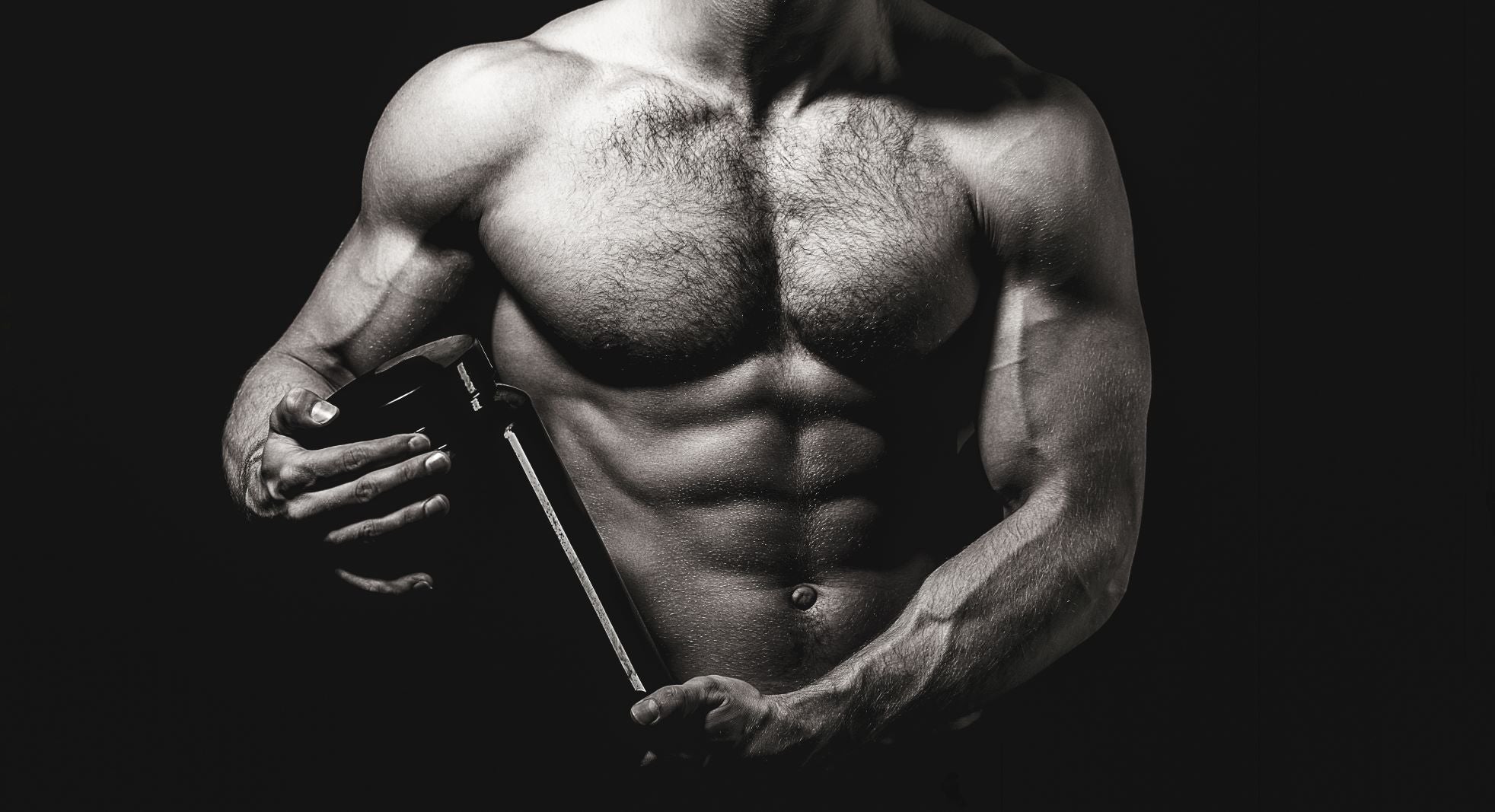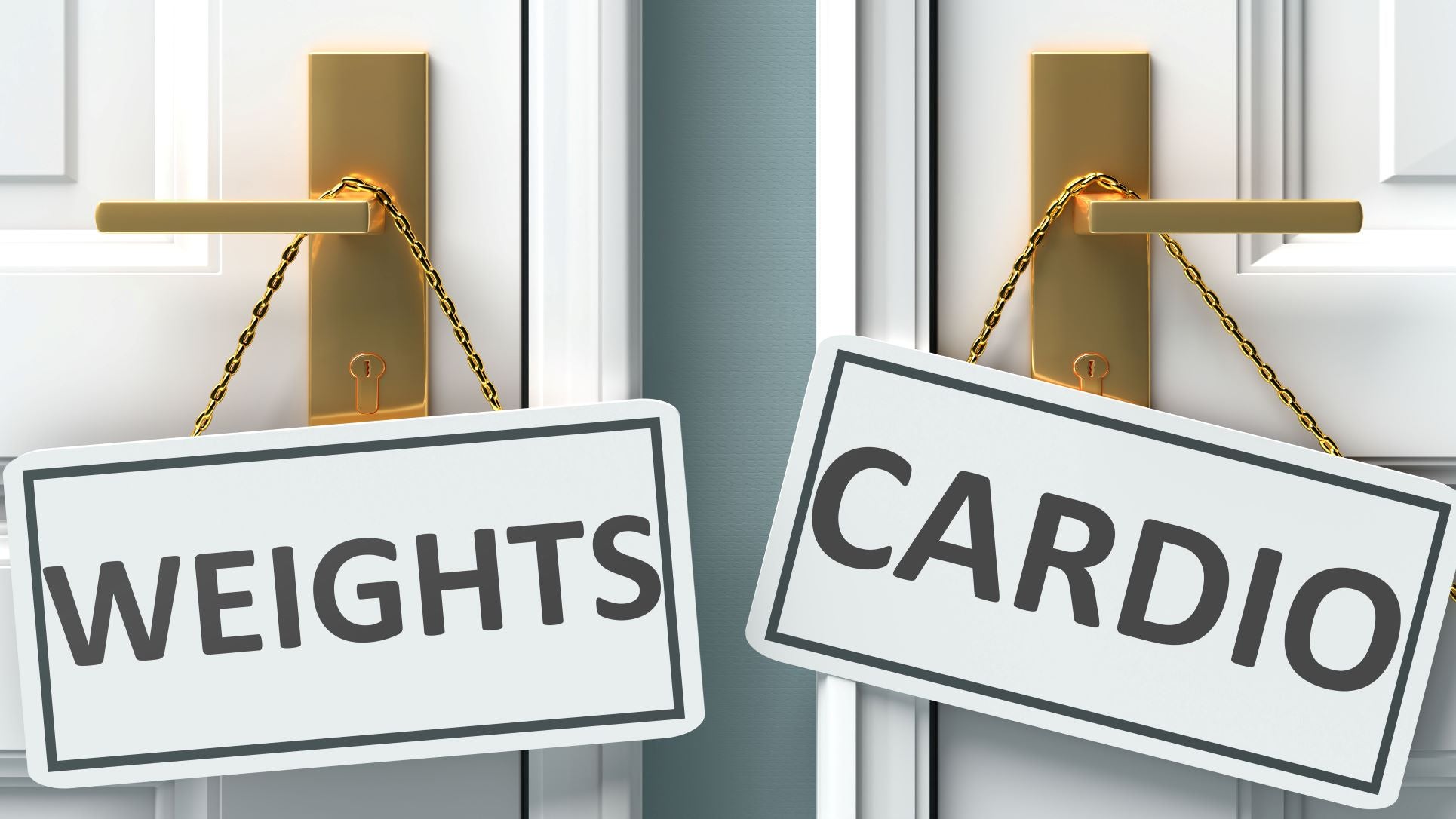When you step in the gym, committed to give it your all, you may have found yourself debating what you should give your ‘all’ too. Cardio or weights? For most, the thing you do first is what gets your best performance. After that, your energy has declined and you’re mentally checking out.
People often question if you should do cardio before or after weights. The short answer is: it depends. Each individual has a different body type, capabilities, restrictions, and most importantly - goals.
So if you’re one of the many people wondering if it is better to do cardio or weights first, this article is for you. We’re going to take a deep dive into the topic and give you the answer you’re looking for.
Combining cardio and weights in one workout
One of the simplest answers to this question is to save your cardio and weight training workouts for different days, or even just different sessions. Combining two different training styles can fatigue you very quickly, and prevent you from performing at your peak in both categories. Many coaches recommend focusing on one type of exercise at a time, to ensure you have maximal energy for each.
However, while that might be optimal, for many it’s not practical. Let’s say you have a busy schedule, kids, or time limitations that prevent you from being able to go to the gym for separate cardio and weight sessions. You don’t have a choice but to combine weights and cardio in one session. In that case, there are some adjustments you can make to get the most out of your workout. We’ll come to that later.
Is it better to do cardio before or after weights?
In nearly all scenarios it’s better to do weights before cardio. When you first step into the gym, your body and mind have maximal energy. From the moment you start your workout, your energy levels, strength, and endurance will begin to decrease. If you want to build muscle size and strength, you need to do it when you have the most energy.
Lifting weights is an anaerobic activity. That means your body breaks down glycogen (stored carbohydrates) to produce ATP (adenosine triphosphate — the energy currency of your cells!) without oxygen. Each muscle contraction has to generate enough force to move the weight.
These quick bursts of activity are difficult to maintain for long periods of time because of the energy system they draw on. As a result, you can typically only lift weights for a given number of reps — usually somewhere between six to 15.
As you might have guessed, this tires you out very quickly. So if your goal is muscle growth, use your energy to do this first.
Check out this article we wrote with the 6 Bodybuilding Tips You Need to Know Before Training.
If your goal is weight loss, it’s still a good idea to do weights first. Weightlifting is better for fat loss than cardio - you’ll burn more total calories per session and have a boosted metabolism for up to 48 hours post-workout. That’s called the ‘afterburn’ effect (excess post-exercise oxygen consumption).
Attempting to lift after a tiring cardio session might mean you’re using lighter weights or lifting fewer reps and sets. This is less challenging for your muscles and you’re not going to be burning the same amount of calories as you would be lifting at a higher intensity.
Strength training is physically taxing. But for many people, strength training is also mentally taxing. That’s another reason why it should be tackled when you first step in the gym. Finishing off your workout with some cardio can be a good way to unwind after a tough workout, whether that’s jogging on a treadmill or using an elliptical. During the cardio part of your workout you can start to take it down a notch, lightening up the work. This is an effective “cool down” method.
These are some of the fitness fundamentals you need to succeed in fitness. Click here to read our full post about this.
When is it better to do cardio before weights?
- High-intensity running
A common question is whether you should run before or after a workout to lose weight, and the answer depends on the intensity of running you’ll be doing. There is a threshold of intensity your body can handle per workout.
For example, a 10 k run should be done before a weight session because it’s likely more taxing on your body, particularly if you’re using lighter weights. You wouldn’t be physically able to do a 10 k followed by an intense hour-long lifting session. Even if it was possible, it would be far from optimal.
- Warming up
It’s essential to warm-up your muscles before you begin a workout - regardless of whether that workout is strength training or cardio. The best way to warm-up is to perform some light cardio.
Light cardio will slowly increase your heart rate and increase the blood flow to muscle tissue to warm them up and prepare them for more intense activity.
A cardio warm-up should last between five and 10 minutes. Keep it light, don’t use up all your energy!
- To increase muscular endurance
Doing cardio before weights will deplete your energy. But if you push through and do some light weight, high rep exercises, you increase muscular endurance. Endurance sports like long-distance running require muscular endurance to sustain activity for long periods of time.
You don’t need to lift heavy if your primary fitness goal is endurance. Lighter weights allow more reps, forcing your muscles to adapt to sustained contractions, just as they would in endurance sport. In fact, higher reps develop your slow-twitch muscle fibers and improve resistance fatigue.
How to combine cardio and weights in one session
If you prefer doing cardio and weights in one session, or it’s how you get the best results, try out a circuit training workout. Here’s an example workout that combines both cardio and strength.
Every Minute on the Minute (EMOM) Cardio and Weights Workout
- 100m sprint
- 10 burpees
- 15 goblet squats
- 15 stiff-leg deadlift to overhead press
- 25 mountain climbers
- 20 lateral raises
For more motivating fitness content, subscribe to the WOLFpak blog.
Read more

Everyone is always searching for the best ab exercises. A strong, lean, ripped core requires core strengthening exercises and a proper training regime. Some people think they can crunch their way...

There’s always a new trend when it comes to weight loss. It’s advertised as the new ‘magic pill’. We hope you know that there isn’t ever a magic pill for weight loss. Only a healthy diet, exercis...













Leave a comment
This site is protected by hCaptcha and the hCaptcha Privacy Policy and Terms of Service apply.